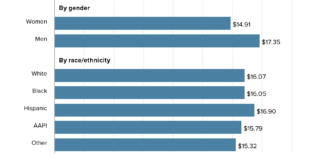 The PEW article Americans Who Mainly Get Their News on Social Media Are Less Engaged, Less Knowledgeable by Amy Mitchell, Mark Jurkowitz, J. Baxter Oliphant and Elisa Shearer (7/30/2020) answers the question with the graph copied here.
The PEW article Americans Who Mainly Get Their News on Social Media Are Less Engaged, Less Knowledgeable by Amy Mitchell, Mark Jurkowitz, J. Baxter Oliphant and Elisa Shearer (7/30/2020) answers the question with the graph copied here.
As of late last year, 18% of U.S. adults say they turn most to social media for political and election news. That’s lower than the share who use news websites and apps (25%), but about on par with the percent who say their primary pathway is cable television (16%) or local television (16%), and higher than the shares who turn to three other pathways mentioned in the survey (network TV, radio and print).
One specific set of nine questions focused on foundational political knowledge, such as the federal budget deficit and which party supports certain policy positions. Researchers created an index of high, middle or low political knowledge based on how many of these nine questions respondents got right (high knowledge answered eight to nine questions correctly, middle got six or seven right and low got five or fewer right; see here for more details of the political knowledge index). While at least four-in-ten individuals who turn mainly to news websites and apps (45%), radio (42%) and print (41%) for news fall into the high political knowledge category, the same is true of just 17% of those who turn most to social media. Only those in the local TV group scored lower, with 10% in the high political knowledge category.
Even as Americans who primarily turn to social media for political news are less aware and knowledgeable about a wide range of events and issues in the news, they are more likely than other Americans to have heard about a number of false or unproven claims.
This is an extensive article with numerous charts and graphs. There is also a detailed methodology section.
